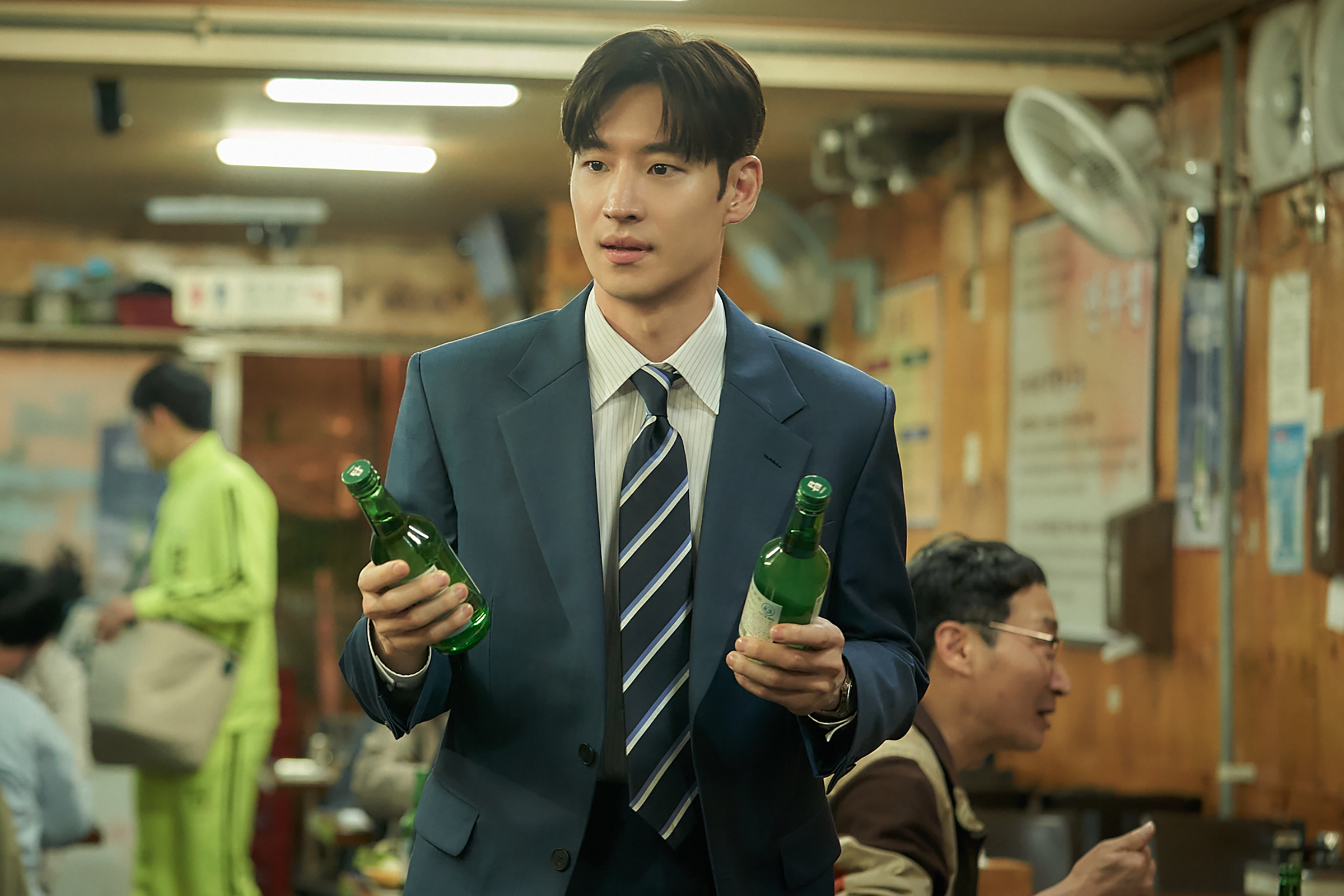Director: Choi Yun-Jin
Writer: Choi Yun-Jin
Stars: Yoo Hae-jin, Lee Je-hoon, Choi Young-joon
Synopsis: In 1997, when the Asian financial crisis hit Korea, Gukbo, the number one Soju company, is on the brink of bankruptcy. In the high-stakes market of M&A, In-beom, a young, ambitious associate at global investment firm Solquin, heads back home to take Gukbo as his first target. Hiding his greediness, In-beom approaches Jong-rok, an executive loyal to Gukbo, as an innocent consultant aiming to rehabilitate Gukbo.
Some interesting ideas are at play in Choi Yun-Jin’s Big Deal, which tracks the fall of the number one Soju company in South Korea, but few actively lead anywhere. The movie, which sets itself up as a corporate drama about an up-and-coming associate gaming the system to his advantage, seems like it will be a cautionary tale on the dangers of unfettered power, as the ones who are on top will always be invincible, while the people who are trying to climb to reach those heights will be the first ones out of the equation.
That alone makes for a riveting first half, as the audience is introduced to In-beom (Lee Je-hoon), as he explains to his boss, Gordon (Byron Mann), why Gukbo, the Soju brand, is ripe for the taking. We know something that Jong-rok (Yoo Hae-jin, who also recently starred in Yadang: The Snitch) doesn’t know when he eventually meets In-beom and posits himself as a consultant looking to help the company avoid bankruptcy, when he actively wants to cause it. When Gukbo eventually goes bankrupt, this is where the movie should theoretically spice itself up as it reaches toward a heavy courtroom drama that’s full of twists and turns.
Yet, writer/director Choi Yun-Jin never gives us a compelling reason to care about anyone on screen, or the plot that keeps overcomplexifying itself as alliances are made, broken, and made again. Who should we trust, or latch onto, when one joins a specific side, and joins another, to then rejoin their initial side as the movie progresses? It’s clear everyone is in this for themselves, but Yun-Jin never clearly defines the narrative paths that either In-beom or Jong-rok take, no matter how hilariously over-the-top or stultifyingly dramatic it gets.
Near the film’s midsection, a pivotal dramatic turn occurs that sours In-beom’s actions to the point where he feels deep remorse for what he’s doing. It’s a fairly dark scene that, in all respects, is treated with as much care as possible, yet is quickly brushed over when, a few sequences later, a hilarious development arises at a trial where Gukbo attempts to keep hold of their assets. That massive turn never gets mentioned again, and the characters don’t necessarily evolve in response to that narrative development.
I’d love to go into details, but it’s one scene closely linked to a character’s arc that’s best left for you to discover. Some will sit with it and think it further develops In-beom’s change of heart, but Yun-Jin muddles the waters further by confoundingly making him switch alliances every couple of scenes. As impassioned as Je-hoon and Hae-jin may be in their respective roles, their sense of alchemy isn’t well-defined, and, as a result, makes the audience uninterested in the matter-of-fact proceedings that occur, even if Yun-Jin has an arresting sense of style.
The movie also features plenty of scenes in the English language, which would add some texture if the characters didn’t say the F-word every 0.5 seconds. It’s a nitpick, sure, but The Wolf of Wall Street (a movie Yun-Jin desperately wants to cite), this is not. It doesn’t contain the free-flowing dialogue that allow characters to frequently swear, as in Martin Scorsese’s film. In fact, they seem to hamper the walking-and-talking nature of Yun-Jin’s movie, and don’t at all sound as integral to the conversations as they were in The Wolf of Wall Street, ultimately creating a frequently jumbled experience that’s far more interesting when it focuses on the character relationships than attempting to recreate an aesthetic that does not, in any way, serve this production.

When Big Deal ultimately ends with the most abrupt and unearned coda, essentially relegating its final scene to a mid-credits tag, one gets the sense that this story, which sounded tantalizing on paper, is not that significant of a…big deal. If it were, I’d absolutely tell you this is a deal none of you can refuse. However, this isn’t the case, and, as visually impressive as the film may be, this deal has little to no value for anyone who decides to acquire part of their time in front of a screen…






